#this is the future xiezhis want
Text
The xiezhi (or the deer) and the butterfly

(I also put deer/doe in the title because I feel like Genshin Impact mixed a male deer and a typical xiezhi to design the adeptus part of Yanfei-)
Here’s a quick drawing I made by animalizing Yanfei and Hu Tao :D. Since Hu Tao is associated with butterflies, and Yanfei with deer-like creatures (Because of her xiezhi blood), I thought why not. The chinese characters (Xièzhi and Hù Diè) also means… well Xiezhi and Butterfly. Aaaah, me and my big brain-
Anyway- I tried to draw a little something without any clear reference (Because rip my wi-fi), it ended looking good I think ? In a year I will probably want to never see it again BUT FOR NOW I’M PROUD OF MYSELF >:]
Might post some other art of Yan and Tao in the future, because they make me happy by their existences… Even though they don’t have any interactions in the game. Hoyo please make them talk in screen, I n e e d i t.
(By the way, I see their relationship platonic or not, i don’t really care cuz their potential dynamic is still great with or without romance- So feel free to see my art of them as shipart too if you want!)
Bye bye <3
#genshin impact#hu tao genshin impact#hu tao#hu tao fanart#yanfei genshin impact#yanfei#yanfei fanart#art#illustration#butterfly#deer#xiezhi#animalified#fanart#jokar fanart#jokar art
10 notes
·
View notes
Photo
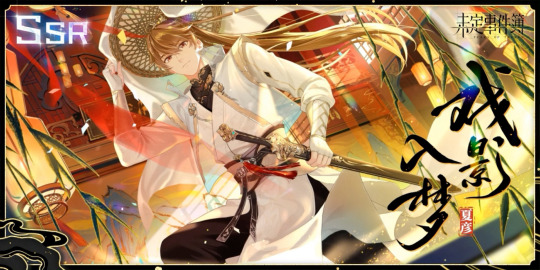
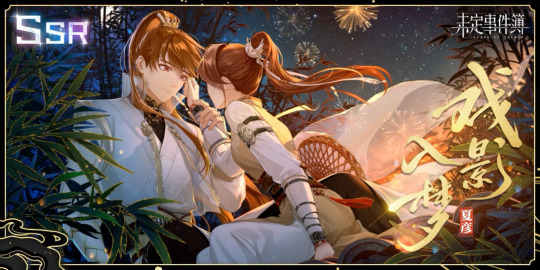
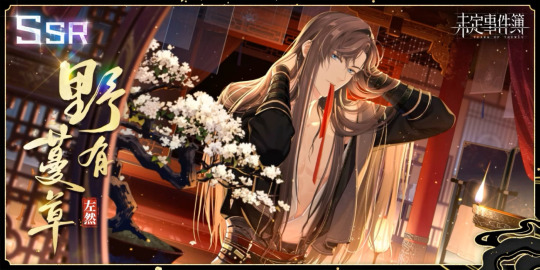
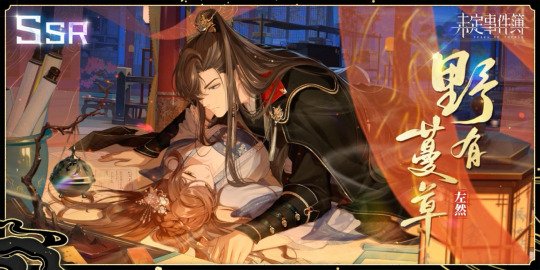
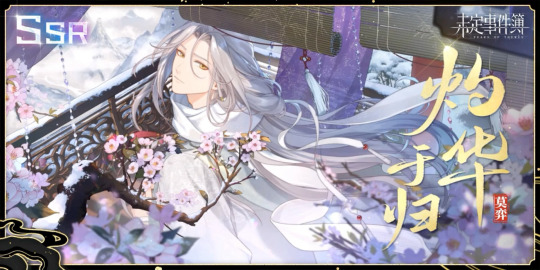
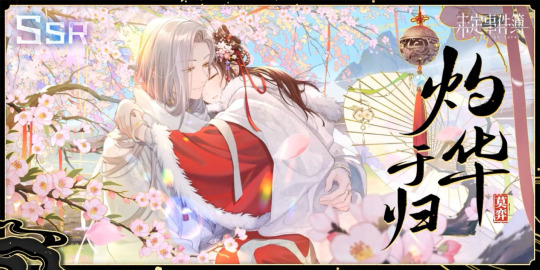
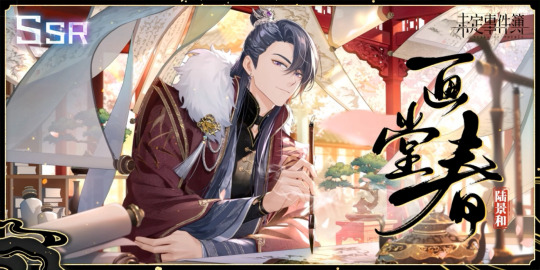
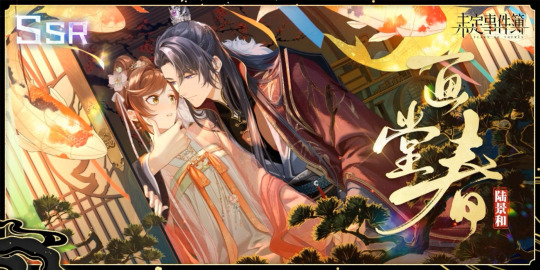
Tears of Themis: Ancient China Event SSR Translations
Event PV
Xia Yan/Luke Pearce [Dreamland Drama]: Today, I will make sure you understand what this wandering knight with a silver-saddled horse is made of!
The warrior walks forward, his scent lingering and sleeves fluttering. The warmth of home can only be found by each others’ sides - “I had a dream where we sat facing each other, like we are now. You wore a red veil...”
*Note 1: The “silver-saddled horse” is a reference to the poem ��年行 “Journey of the Youth” by Li Bai. It describes a bold young man’s carefree journey.
*Note 2: The second line contains a reference to the poem 侠客行 “Journey of the Knight” by Li Bai. The poem describes knights in a fairly admiring way - someone who strives to help the troubled and cares not for fame and fortune.
Zuo Ran/Artem Wing [Vine-tangled Wilderness]: As long as you do not leave the Mansion of the Xiezhi… not a single soul shall know the truth.
A beautiful man, with clear eyes and a fair forehead. Inseparable forever after learning about each other - “I... will not let you leave. I will have you stay by my side, forever.”
*Note: Both his title and the second of his lines above reference to the anonymously-written Chinese poem 野有蔓草 (which is exactly the name of his card). It describes of a sudden, simplistic encounter between a man and a woman in the fields.
Mo Yi/Vyn Richter [Glorious Union]: To me, your existence is like a singular star in an eternal night. But I would rather see that single instant of light and bear the thousands and thousands of years of darkness thereafter.
On the lush peach trees, flowers bloom vividly. Silhouettes in a dream entangle together - “I will fulfill any wish as long as it is yours, so don’t be afraid, alright?”
*Note: The second line’s references to the peach blossoms come from an anonymously-written poem called 桃夭, which writes of a young lady’s happy married future. The name of the card also consists of characters in the poem - with 灼华于归 being the name of the card, the adjectives 灼 and 华 translated as “Glorious” here, while 于归, translated roughly as “Union” here, more accurately refers to a soon-to-be bride.
Lu Jinghe/Marius von Hagen [Painting Studio Spring]: Stay behind with me. From now on, you will gradually lose all your memories of the mortal world... until only I remain in your world.
The dimming lights far away cast a faint light on a long-sought partner - “What if I said that I liked you, and wanted to spend my whole life with you?”
*Note: My understanding on this subject is rather tenuous, but it seems that what’s been translated to “Painting Studio Spring” (画堂春) is a form of rhythm or music to which poems are composed, and is involved in the composition of many poems.
#Tears of Themis#tears of themis translations#xia yan#luke pearce#zuo ran#artem wing#mo yi#vyn richter#marius von hagen#lu jinghe#so much poetry oh god
338 notes
·
View notes